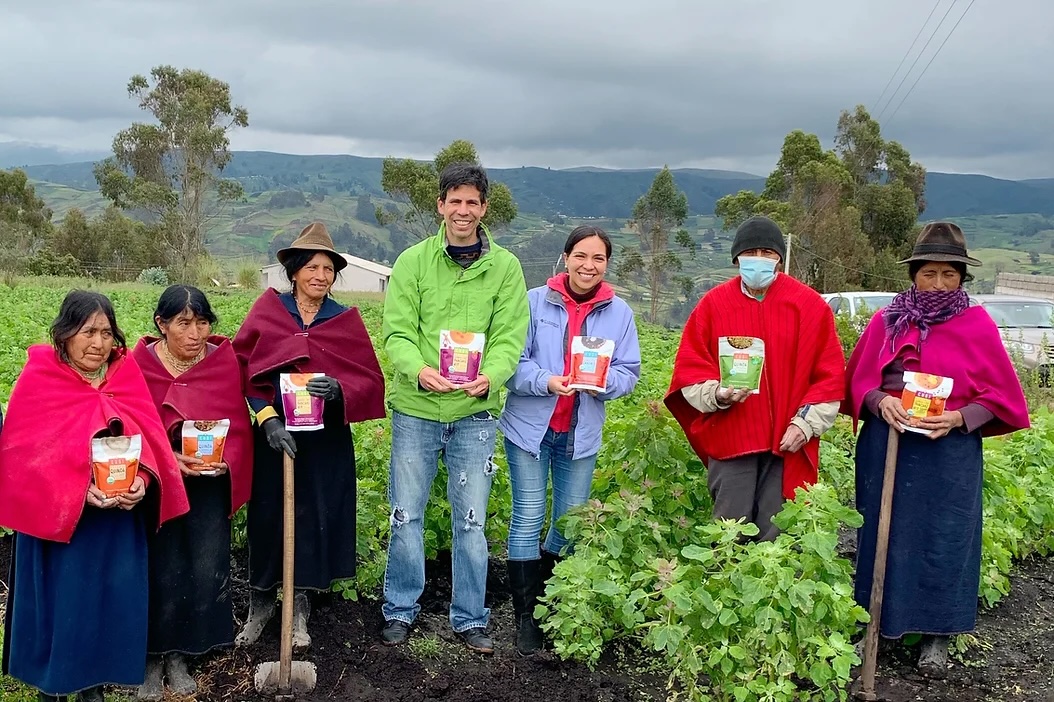ImpactAlpha, Oct. 4 – More than 150 years of discriminatory lending and land heists have left a generation of Black farmers with little access to reliable, affordable capital to grow their food businesses.
Black Farmer Fund provides flexible capital to farmers and food entrepreneurs in the northeastern US, “who were seeking capital that did not replicate the discriminatory and predatory lending practices driving Black farmers and land stewards off their land,” cofounder Melanie Allen wrote in ImpactAlpha earlier this year.
After building a pilot portfolio of eight entrepreneurs, Black Farmer Fund last month raised $11 million from Chordata Capital, the Kataly Foundation and other investors. The fund will “center the farmers’ lived knowledge, collective decision-making and community relationships,” wrote Allen.
Black Farmer Fund cofounder Olivia Watkins is today’s guest on ImpactAlpha’s Plugged In series with host Sherrell Dorsey. Other lenders breaking down barriers facing Black farmers include Konda Mason’s Jubilee Justice, Potlikker Capital and Farm Credit Mid-America.
Black farmer justice
About 44,000 Black farmers remain in the US, down from more than a million in the 1920s. Over the course of the last 100 years, Black farmers and their families have lost some $325 billion worth of farmland and acreage.
The U.S. The Department of Agriculture, a reliable source of cheap capital for most farmers, has been part of the problem. In 2022, the agency accepted only a third of applications from Black farmers; USDA funded seven in 10 white farmers that applied that year.
The Inflation Reduction Act included $2.2 billion in financial aid for farmers that have faced discrimination by USDA. The Justice for Black Farmers Act, reintroduced in February by U.S. Representative Alma Adams and Senator Cory Booker, would go further.
The Act would provide debt relief and new land grants for existing and aspiring Black farmers, create a new bank to finance Black farmer and rancher cooperative financial institutions, and fund HBCUs to expand their agriculture research and courses of study.
Flexible Finance
Last year, Konda Mason’s Jubilee Justice worked with 13 farmers in half a dozen states in the southeast, providing a mix of flexible capital, technical assistance and market access. The support “is happening with Black farmers being in the front of the line this time instead of the back,” Mason said at a GIIN event in 2021.
Marcus Tyler Jr. of Farm Credit Mid-America, a national lender that targets farmers in select rural communities, says another overlooked challenge the new generation of Black farmers is facing is student debt.
“We have a program called Growing Forward to break those barriers to entry and new challenges that young Black farmers are having,” Tyler Jr. said at last month’s annual legislative conference of the Congressional Black Caucus Foundation. The program offers flexible lending options, as well as financial education.
Christi Bland-Miller, a fourth-generation farmer whose lineage can be traced back to Sledge, Mississippi, said at the Congressional Black Caucus Foundation event that her great-grandparents decided to stay in the South during the Great Northward Migration, the relocation of more than 6 million Black Americans from the rural South to the urban Northeast.
“I’m fortunate that my family stayed and continued farming so I could get this opportunity,” says Brand-Miller, who launched her own farming business, CMB Farm, in 2017. The farm, currently about 1,600 acres, grows soybeans and rice.
ImpactAlpha’s Roodgally Senatus contributed reporting.











